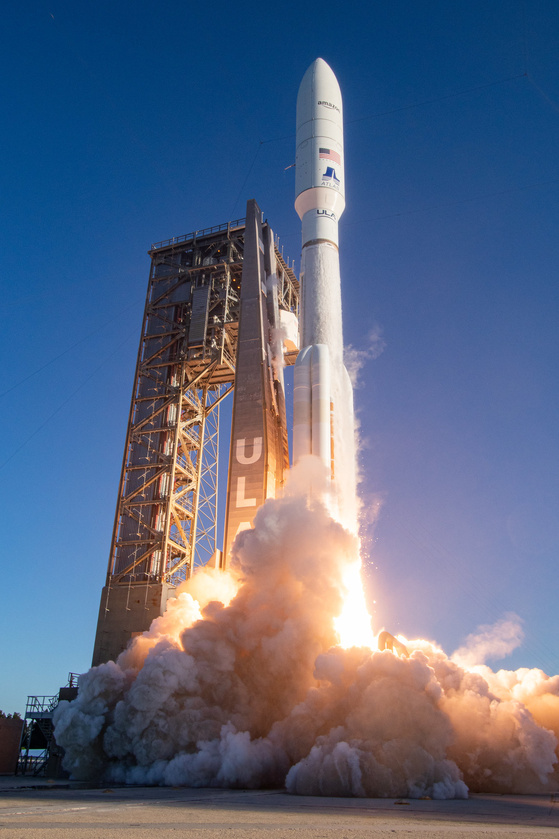A United Launch Alliance (ULA) Atlas V 551 rocket successfully launched 27 Project Kuiper broadband satellites into low Earth orbit on Thursday, Sept, 25, at 1209 UTC from Space Launch Complex-41 at Cape Canaveral Space Force Station in Florida.
The Atlas V 551 rocket, featuring five GEM 63 solid rocket boosters and a single RL10C-1-1 engine on its Centaur upper stage, lifted off on schedule. The launch window was 29 minutes long, and favorable weather conditions, with a 95% chance of acceptable conditions, were confirmed by the U.S. Space Force's 45th Weather Squadron.
The payload fairing, a 23-meter composite shroud, was jettisoned after ascent through the atmosphere. The Centaur upper stage's main engine cutoff (MECO) was confirmed, and the 27 satellites were successfully deployed at an initial altitude of 450 kilometers(km).
The satellites will now be gradually raised to their operational orbit of 630 km by Amazon's mission operations center in Redmond, Washington.
The Kuiper 3 (or KA-03) mission marks the fifth launch for Amazon's Project Kuiper constellation and the third batch of satellites delivered by ULA on the Atlas V rocket. The launch was part of a morning doubleheader, following a SpaceX Falcon 9 launch carrying 28 Starlink satellites just hours earlier.
This launch is the third of nine planned Atlas V missions for Amazon's Project Kuiper constellation, with the remaining five scheduled before transitioning to the next-generation Vulcan rocket.
ULA is delivering more than half of the constellation's 3,200 satellites under the world's largest commercial launch agreement. These spacecraft will be lofted on more than 80 launches performed by a variety of rockets — SpaceX's Falcon 9, Arianespace's Ariane 6, Blue Origin's New Glenn and ULA's Atlas V and Vulcan Centaur.
Thursday's successful launch brings Amazon's total number of in-orbit Project Kuiper satellites to 129. Project Kuiper faces competition from SpaceX's Starlink, which operates the world's largest satellite constellation with over 8,000 satellites as of September 2025.















